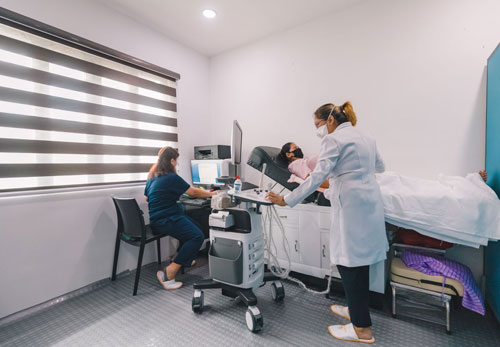As the Philippines continues to move towards the next normal with businesses, establishments, and public transportation systems operating at full capacity, people have been moving around more frequently reporting to work and school, and spending time in malls and other public places. This increased mobility highlights the importance of getting vaccinated against preventable diseases.
Since the advent of modern medicine, vaccines have been used to help reduce vaccine- preventable diseases. Currently, there are more than 20 vaccines available that may help prevent around 2 to 3 million deaths per year from vaccine-preventable diseases.
However, many still do not fully understand why it’s important to get vaccinated and a lot are also concerned about potential risks. Below are some of the reasons why you and your loved ones should speak to your doctor about protecting yourself from vaccine-preventable diseases.
Even healthy people can get sick
There is no guarantee of resistance when it comes to viral and bacterial infections. Even people who lead healthy lifestyles–those who watch what they eat, exercise regularly, and neither drink nor smoke–may get sick. For example, anyone may be infected with the common flu, a vaccine-preventable illness, which may lead to more serious complications.
It may help you save on medical bills
Getting sick is costly: laboratory tests, doctor consults, hospitalization, operations, and treatment all add up on top of the usual cost of living. Ask your doctor on how to help prevent diseases that may cost a person his or her time, money and effort to receive treatment and hospitalization.
It allows you to do more with less worry
When you take steps to protect yourself, you are less susceptible to illness and more able to do the things you want without worrying about your health.
The World Health Organization (WHO) recommends travelers to get vaccinated before flying to certain countries that may help avoid getting vaccine-preventable diseases. This allows people to travel freely with less chances of getting sick.
Vaccine-preventable diseases still exist
Viruses and bacteria that cause vaccine-preventable diseases still exist. In 2019, the Philippines experienced a polio outbreak. While polio had been largely eradicated by successful immunization drives in the past, the recent outbreak proved that the virus is still circulating.
It may help prevent symptoms and associated health risks
By completing your shots, it may help lower your chances of experiencing serious symptoms and health risks associated with certain vaccine-preventable diseases.
COVID-19 vaccines, according to the Centers for Disease Control and Prevention (CDC), may help your body fight the virus to prevent severe symptoms, hospitalization, and other long-haul conditions when infected.7
It may help lower the chance of spreading sickness to your loved ones
Because vaccination may help lessen your chances of catching vaccine-preventable diseases, you are also less likely to spread it to your friends and family. This is especially important if you are living with people who have comorbidities or those who have a higher risk of developing serious health conditions from vaccine-preventable diseases.
It contributes to herd immunity
Herd immunity may occur when enough people are immunized against a certain vaccine- preventable disease, thus it may help protect others who are more vulnerable to it. This means that vaccines may not only protect you and your family, but also those you encounter on a day- to-day basis.
It may reduce incidence of death and life-threatening illness
Immunization has helped reduce around 4 to 5 million deaths a year. Viruses like the human papillomavirus (HPV) can stay dormant and undetected in infected individuals for years, and may cause HPV-related diseases and cancers later on in life. Taking steps to protect yourself against HPV may help prevent eventual risks like genital warts and even HPV-related cancers including cervical, anal, mouth, and throat cancers from developing.
Protecting yourself against vaccine-preventable diseases offers a lot of advantages when it comes to keeping you, your loved ones, and the rest of your community healthy. After all, an ounce of prevention is worth more than a pound of cure.




